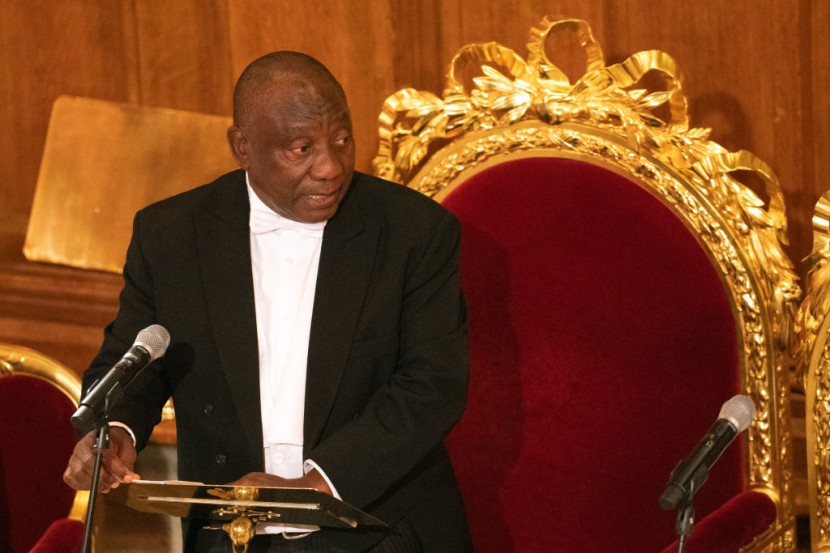Recently South African President Cyril Ramaphosa crowed about the progress that his party, the African National Congress, is making on such problems as unemployment, which is at record numbers, a decaying electrical grid, and allegations of corruption-all of which have caused his leadership to come into question.

In a State of the Union speech before Parliament that was two hours, a virtual marathon by any measure, President Ramaphosa's tone was largely in defense of actions taken during his first term in office.
Associated Press reports that several polls suggest that the ANC, the party of Nelson Mandela and South Africa's ruling party for three decades, may be losing the majority this year. Once considered a terrorist organization by the white ruling class, the African National Congress has been in government since the fall of apartheid in 1994.
However, its reputation has gradually declined over the years.
"Just as we cannot deny the progress South Africans have made over the last 30 years, nor should we diminish the severe challenges that we continue to face," Ramaphosa said.
While he agreed that South Africa's economy is facing problems, Ramaphosa was steadfast in his belief that the country is a better place today than it was under the rule of apartheid.
Currently, the official unemployment rate in the country is over 30%, which is the highest in the world. Additionally, the country's young people are suffering an unemployment rate of a walloping 60% for those under 25 years old.
In addition to a struggling economy, South Africa's grid is prone to rolling blackouts that negatively affect businesses. Last year, the country was plagued with blackouts that lasted up to 12 hours a day.
Many have blamed this problem on the administration of former President Jacob Zuma, who led the country from 2009-2018. He is accused of presiding over an era of stifling corruption that was widespread. It is said that state-run entities, such as the national electric suppliers, were pillaged.
Ramaphosa told Parliament that over 200 people had been prosecuted for corruption and more were under investigation. In total, $453 million in stolen funds had been returned to the state while another $737 million in assets had been frozen by authorities.
"But there is much more work to be done to eradicate corruption completely," Ramaphosa said. "We will not stop until every person responsible is held to account.
We will not stop until all money stolen has been recovered."
Some estimates put the cost of that period of corruption at $17 billion.
The ANC recently suspended former president Jacob Zuma, who presided over the country for nine years, in a move that many believe signifies the growing split within the party.
Zuma was forced to step aside by the ANC party to make room for the current president to shine. Jacob Zuma was dogged by corruption allegations and blamed for South Africa's stagnant economy.
The Democratic Alliance, the leading opposition group, said Ramaphosa's speech didn't hide that the country fell "into a state of decay and decline that has only exacerbated inequality, placed millions more in the unemployment queue, and taken our country backward" under his rule.
"Thirty years of South African democracy does not mean we should endure an eternity under the ANC. It is time for new ideas. It is time for a new government," Democratic Alliance leader John Steenhuisen said.
© 2026 HNGN, All rights reserved. Do not reproduce without permission.








